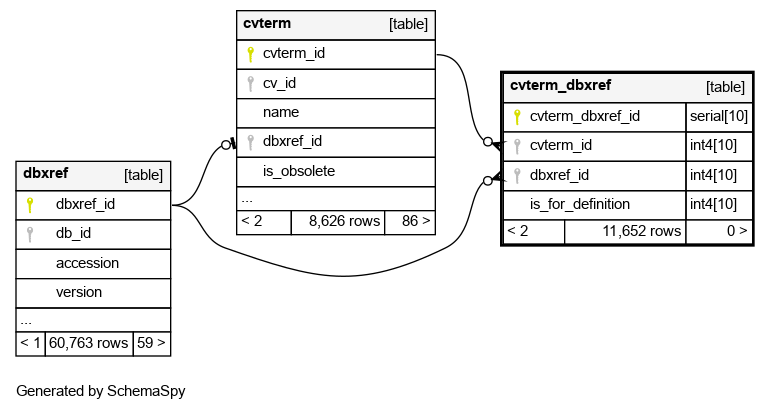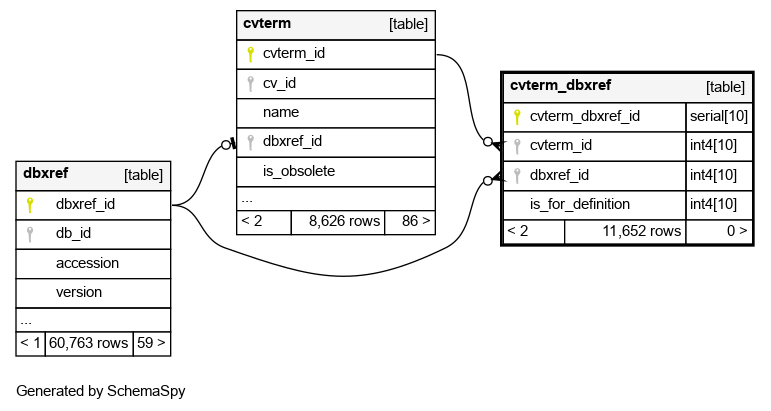Columns
| Column | Type | Size | Nulls | Auto | Default | Children | Parents | Comments | |||
|---|---|---|---|---|---|---|---|---|---|---|---|
| cvterm_dbxref_id | serial | 10 | √ | nextval('cvterm_dbxref_cvterm_dbxref_id_seq'::regclass) |
|
|
|||||
| cvterm_id | int4 | 10 | null |
|
|
||||||
| dbxref_id | int4 | 10 | null |
|
|
||||||
| is_for_definition | int4 | 10 | 0 |
|
|
A cvterm.definition should be supported by one or more references. If this column is true, the dbxref is not for a term in an external db - it is a dbxref for provenance information for the definition |
Indexes
| Constraint Name | Type | Sort | Column(s) |
|---|---|---|---|
| cvterm_dbxref_pkey | Primary key | Asc | cvterm_dbxref_id |
| cvterm_dbxref_c1 | Must be unique | Asc/Asc | cvterm_id + dbxref_id |
| cvterm_dbxref_idx1 | Performance | Asc | cvterm_id |
| cvterm_dbxref_idx2 | Performance | Asc | dbxref_id |



